Global War on Terror - Silver Star - Army
The records below contain the Army recipients of the Silver Star during the Iraq and Afghanistan conflicts, collectively known as the Global War on Terror.
* Indicates Killed in Action (KIA), Missing in Action (MIA), Prisoner of War (POW), or Died Non-Battle (DNB)
![]()


Citation:
The President of the United States of America, authorized by Act of Congress July 9, 1918 (amended by an act of July 25, 1963), takes pleasure in presenting the Silver Star to Corporal Jeremiah C. Olsen, United States Army, for conspicuous gallantry and intrepidity in action against an armed enemy while serving as a Gun Team Leader, 2d Battalion, 75th Ranger Regiment, assigned to Task Force 20, from 11 June 2003 to 12 June 2003, in support of Operation IRAQI FREEDOM. Corporal Olsen's courage, vision, and professional competence contributed directly to the overall success of the mission. He ordered his vehicle to move to rescue two aircraft pilots whose helicopter had been shot down by enemy fire. By shielding them from effective enemy fire with the vehicle, Corporal Olsen retrieved the pilots and moved them to a position of safety. Subsequently, he rejoined the battle--destroying several enemy positions and treating his wounded driver. Throughout his distinctive accomplishments, Corporal Olsen reflected great credit upon himself, Task Force 20, and the United States Army.
Home Town: Coupeville, Washington
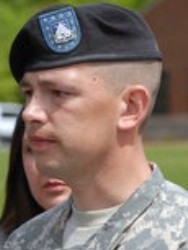

Citation:
The President of the United States of America, authorized by Act of Congress July 9, 1918 (amended by an act of July 25, 1963), takes pleasure in presenting the Silver Star to Sergeant First Class Richard J. Olson, Jr., United States Army, for gallantry in action in Afghanistan on 10 August 2009. Sergeant First Class Olson distinguished himself by exceptionally valorous achievement while deployed in support of Operation ENDURING FREEDOM in the Global War on Terrorism as a Counter Improvised Explosive Device Team Leader, 741st Explosive Ordnance Disposal Battalion (CIED), Combined Joint Task Force Paladin, Combined Joint Task Force-82, United States Forces-Afghanistan, on 10 August 2009. Among his numerous accomplishments, Sergeant First Class Olson ensured the governor was adequately protected and made the necessary political coordination for Afghan National Army supported by United States Forces to enter and clear the five story Anti Afghan Force stronghold. Sergeant First Class Olson's outstanding performance and dedication to duty were critical to the success of the Counter Improvised Explosive Device fight in a dangerous and dynamic environment. The distinctive accomplishments of Sergeant First Class Olson reflect great credit upon himself, 741st Explosive Ordnance Disposal Battalion, Combined Joint Task Force Paladin, Combined Joint Task Force-82, the United States Army, and the Department of Defense. NARRATIVE TO ACCOMPANY AWARD: Sergeant First Class Richard J. Olson, Jr., United States Army, distinguished himself through exceptionally valorous achievement while deployed in support of Operation ENDURING FREEDOM and the Global War on Terrorism as a Counter Improvised Explosive Device (CIED) Team Leader, 741st Explosive Ordnance Disposal Battalion (CIED), Combined Joint Task Force Paladin, Combined Joint Task Force-82, United States Forces-Afghanistan, on 10 August 2009. Sergeant First Class Olson displayed outstanding personal courage and bravery while leading CIED Team 15 on a Quick Reaction Force Mission in Pul-E-Alam District of Logar Province, Afghanistan. CIED Team 15 was launched after reports of Taliban Fighters in the Capital of Pul-E-Alam were firing Rocket Propelled Grenades (RPG) and Small Arms Fire (SAF) and had overrun the Governors Compound and the Provincial Headquarters in attempt to assassinate the Governor of Logar. Sergeant First Class Olson's decisions under fire led to the suppression of SAF by Anti-Afghan Forces (AAF) fighters resulting in one confirmed Enemy Killed in Action (EKIA) thus allowing movement to the governors' compound. He insured the governor was adequately protected and made the necessary political coordination for Afghan National Army (ANA) supported by U.S. Forces to enter and clear the five story AAF stronghold. A Vehicle Borne Improvised Explosive Device detonated just outside of the AAF stronghold. He then dismounted establishing a secured area for all assault elements to prepare for the assault. Sergeant First Class Olson took control of all assault elements consisting of 12 ANA Soldiers, four CIED Team 15 dismounts, five Personal Security Detachment dismounts, three French Operation Mentor and Liaison Team, and five Route Clearance Patrol 13 dismounts. On order Sergeant First Class Olson led the assault element into the AAF stronghold and began to clear utilizing the ANA in the lead. After the assault element successfully cleared the bottom four floors only one floor remained. During the initial approach on the fifth floor Sergeant First Class Olson deployed a hand grenade to clear the immediate area for the ANA entry team. As the hand grenade entered the hallway and Sergeant First Class Olson moved to cover an armed insurgent opened fire, he was aided by two fellow Soldiers resulting in one EKIA. After the detonation of the hand grenade an enemy Wounded in Action (WIA) began to fire into the stairwell and was engaged by a fellow Airman who moved to the fourth floor. On three separate occasions the attempt to gain access to the fifth floor failed, resulting in one ANA KIA and three ANA WIA. The assault was a stalemate and the remaining insurgents had a tactical advantage overhead. Sergeant First Class Olson secured a Claymore Mine and attached it to a 15-foot long pole. An Airman provided close security as Sergeant First Class Olson with disregard for his own personal safety moved the claymore utilizing the four inch space between the flights of stairs to engage the insurgents from below. Sergeant First Class Olson's tactical decisions and improvised mine were successful resulting in an additional EKIA and ending the stalemate, thus allowing the complete clearance of the AAF stronghold without sustaining additional casualties and ending the five and a half hour fire fight. The distinctive accomplishments of Sergeant First Class Olson, reflects great credit upon himself, 741st Explosive Ordnance Disposal Battalion (CIED), Combined Joint Task Force Paladin, Combined Joint Task Force-82, the United States Army and the Department of Defense.
Home Town: Spencer, Massachusetts
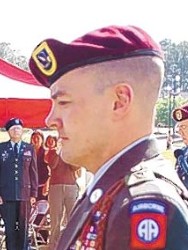

Synopsis:
The President of the United States of America, authorized by Act of Congress July 9, 1918 (amended by an act of July 25, 1963), takes pleasure in presenting the Silver Star to Sergeant First Class Michael Scott Onstine, United States Army, for gallantry in action while serving as a Platoon Sergeant for 2d Platoon, Company C, 1st Battalion, 504th Parachute Infantry Regiment, 82d Airborne Division, on 30 September 2007 during Operation RUSTUM in support of Operation IRAQI FREEDOM, near Baghdad, Iraq. While conducting a raid on the Kha Tun Mosque and an adjacent house, the enemy initiated a firefight with small-arms fire. The platoon returned fire when shrapnel from an enemy grenade ripped through the back of both of his legs and shoulder. Sergeant First Class Onstine refused medical treatment, electing to remain with his platoon until the enemy broke contact and other wounded paratroopers had been evacuated. In a follow-on mission, the platoon was again ambushed and was receiving small -arms fire and grenade attacks from three separate positions as they approached their target's house. Three paratroopers, an Iraqi interpreter and a human intelligence source were immediately wounded. Sergeant First Class Onstine and the platoon medic rushed to the aid of a wounded paratrooper as enemy rounds impacted around them. Sergeant First Class Onstine remained completely exposed in an alley, providing cover fire so the wounded could be moved, while ordering massive fire on enemy positions. When it became clear support would not reach his men, still pinned down, he volunteered to stay behind covering his platoon's withdrawal while engaging nearly twenty insurgents with his M-4 and grenades. Sergeant First Class Onstine's gallant actions and dedicated devotion to duty, without regard for his own life, were in keeping with the highest traditions of military service and reflect great credit upon himself, the 82d Airborne Division, and the United States Army.
Home Town: Phoenix, Arizona
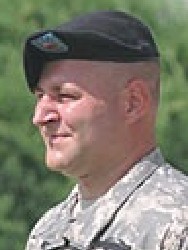

Citation:
The President of the United States of America, authorized by Act of Congress July 9, 1918 (amended by an act of July 25, 1963), takes pleasure in presenting the Silver Star to Staff Sergeant [then Sergeant] Sean J. Outman, United States Army, for valorous achievement on 14 November 2010, while serving as a team leader for 3d Platoon, Company A, 1st Battalion, 327th Infantry Regiment, 101st Airborne Division, in support of Operation Enduring Freedom X-XI. Sergeant Outman demonstrated the highest standard of performance and valor, saving the lives of several Soldiers by leaving cover to secure the medic and bring him to the casualty collection point during an operation in the Watapur Valley, Afghanistan. . His selfless actions and disregard for personal safety saved the lives of numerous Soldiers, reflecting great credit upon him, the 1st Brigade Combat Team, the 101st Airborne Division (Air Assault), and the United States Army.
OWEN, AARON D.
Synopsis:
The President of the United States of America, authorized by Act of Congress July 9, 1918 (amended by an act of July 25, 1963), takes pleasure in presenting the Silver Star to Staff Sergeant Aaron D. Owen, United States Army, for conspicuous gallantry and intrepidity in connection with military operations against an armed hostile force while serving with the 1st Battalion, 37th Armored Regiment, 1st Armored Division, in support of Operation IRAQI FREEDOM on 11 May 2004, at Karbala, Iraq. Staff Sergeant Owen breached multiple enemy obstacles including small arms, sniper and rocket propelled grenade fire. With exceptional courage under fire, he placed himself at great personal risk to accomplish his mission. Staff Sergeant Owen gallant actions and dedicated devotion to duty, without regard for his own life, were in keeping with the highest traditions of military service and reflect great credit upon himself, the 1st Armored Division, and the United States Army.


Synopsis:
The President of the United States takes pleasure in presenting the Silver Star Medal to Christopher Palumbo, Chief Warrant Officer 3, U.S. Army, for conspicuous gallantry and intrepidity in action while serving as a UH-60 Blackhawk Pilot with Company A, 3d Battalion, 158th Aviation Regiment, during combat operations in support of Operation ENDURING FREEDOM, in Afghanistan, on 11 April 2005. Chief Warrant Officer Three Palumbo, the pilot-in-command, and his crew responded to an Afghan national army convoy that had been attacked by insurgents. He and another aircraft, carrying a Special Forces team, entered the area. The enemies fled into the mountains when the first responders, two AH-64 Apaches, came into view. Chief Warrant Officer Three Palumbo dropped off the ground forces' team leader who confirmed that none of the Afghan soldiers had been injured. The ground commander got back on board and said they needed an Aerial Reconnaissance Force and put shooters in the doors. The AH-64s flew to the area and saw three suspected militants and Chief Warrant Officer Three Palumbo inserted the Special Forces team to neutralize the threat. The Soldiers were successful, but they didn't realize that most of the insurgents were embedded in the caves. Two of the ground troops were hit and when the Apaches had to leave to refuel, the Black Hawks were left to provide support and protection for their comrades on the ground. Chief Warrant Officer Three Palumbo tried to land near the two wounded troops to evacuate them, but the rocky, steep cliff the Soldiers were on made it too dangerous for the Black Hawk to land, so he decided to fly figure-eight patterns and try to keep the aircraft between the wounded and the enemies running at them. While providing security, the aircraft was heavily damaged by small-arms fire and RPG explosions and the crew chief was wounded by shrapnel. Still the crew kept the enemy on the ground busy while a medic rushed toward the wounded Soldiers. During the action Chief Warrant Officer Three Palumbo's aircraft sustained more than 50 gun shots; the fuel cell was damaged and was leaking gas. Finally he flew the heavily-damaged aircraft to a hospital so the wounded crew chief could receive medical care. Chief Warrant Officer Three Palumbo and the remaining crew members intended to rejoin the fight but when the aircraft was repositioned to refuel and rearm, fuel began spraying out. He performed an emergency shutdown and everyone vacated the area. A medivac helicopter in the area responded to the area and safely evacuated the two wounded Soldiers.
PARKHURST, DAVID F.
Synopsis:
The President of the United States of America, authorized by Act of Congress July 9, 1918 (amended by an act of July 25, 1963), takes pleasure in presenting the Silver Star to Staff Sergeant David F. Parkhurst, United States Army, for conspicuous gallantry and intrepidity in connection with military operations against the enemy while serving with the 3d Battalion, 160th Special Operations Aviation Regiment (Airborne), in support of Operation ENDURING FREEDOM in Afghanistan 14 September 2011. On that date he was a member of one of two aircraft dispatched to recover a Navy explosive ordnance disposal (EOD) technician who had been badly injured by an antipersonnel IED in a very active region with a large confirmed insurgent presence. The technician was successfully recovered and, despite the loss of his leg, received life-saving medical treatment. Staff Sergeant Parkhurst's gallant actions and dedicated devotion to duty, without regard for his own life, were in keeping with the highest traditions of military service and reflect great credit upon himself, his unit, and the United States Army.
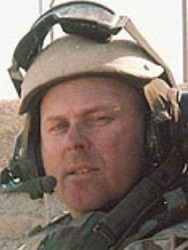

Synopsis:
The President of the United States of America, authorized by Act of Congress July 9, 1918 (amended by an act of July 25, 1963), takes pleasure in presenting the Silver Star to Staff Sergeant Lonnie James Parson, United States Army, for conspicuous gallantry and intrepidity in connection with military operations against an armed hostile force while serving with the 3d Battalion, 7th Armored Cavalry Regiment, 3d Infantry Division, in support of Operation IRAQI FREEDOM in Iraq, on 13 December 2003. Staff Sergeant Parson's gallant actions and dedicated devotion to duty, without regard for his own life, were in keeping with the highest traditions of military service and reflect great credit upon himself, the 3d Infantry Division, and the United States Army.
Home Town: Norcross, Georgia
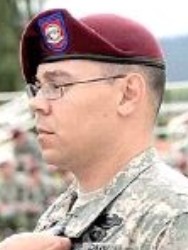

Synopsis:
The President of the United States of America, authorized by Act of Congress July 9, 1918 (amended by an act of July 25, 1963), takes pleasure in presenting the Silver Star to Specialist Robert E. Parson, United States Army, for gallantry in connection with military operations against an opposing armed force while serving with the 1st Battalion, 501st Infantry Regiment, 4th Brigade Combat Team (Airborne), 25th Infantry Division, in action on 26 August 2009, in support of Operation Enduring Freedom in Afghanistan. Private First Class Parson continuously placed himself in constant exposure to enemy fire while attempting to recover his wounded squad leader. Private First Class Parson was struck and suffered wounds from enemy forces. Despite his wounds, he held his position throughout the engagement to allow fellow platoon members to recover the wounded Soldier. Specialist Parson's gallant actions and dedicated devotion to duty, without regard for his own life, were in keeping with the highest traditions of military service and reflect great credit upon himself, the 25th Infantry Division, and the United States Army.
Home Town: Texas City, Texas
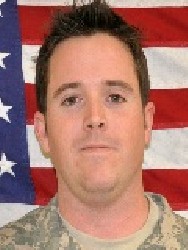

Citation:
The President of the United States of America, authorized by Act of Congress July 9, 1918 (amended by an act of July 25, 1963), takes pleasure in presenting the Silver Star to Staff Sergeant Michael P. Pate, United States Army, for conspicuous gallantry and intrepidity in connection with military operations against the enemy. Staff Sergeant Pate heroically distinguished himself by exceptionally valorous conduct in the face of the enemy of the United States as Medical Sergeant, Civil Affairs Team 611, Special Operations Task Force-Southeast, Village Stability Platform Shobar, Afghanistan, in support of Operation ENDURING FREEDOM. On the afternoon of November 1, 2012, while conducting a routine civil reconnaissance patrol, Sergeant Pates' patrol came under small-arms and automatic weapons fire in an ambush east of the village of Sardar Kala, Afghanistan. The entire patrol was heading east, stretched out over a 400 meter distance and was caught in a freshly plowed farmer's field that gently sloped upward. The only cover or concealment came in the form of ankle high irrigation berms. Sergeant Pate's element 4 was the western most squad and was 175 meters from 2 fortified heavy machine gun positions and at least 6 additional enemy shooters who used a dense orchard village which provided multiple egress routes, and also contained a large number of civilians in the area. The trail man in element 4 also carried the heavy weapon system and was critically wounded when a bullet from the initial burst struck him in the back. The enemy machine-gunners concentrated fire on the element 4 members. Sergeant Pate realized the necessity to immediately neutralize the enemy threat and render aid to his wounded teammate, so he risked his own life to run over 50 meters back toward the enemy fighting positions. While the other members of element four were pinned down and returning fire, Sergeant Pate and his team leader, Captain Jacob Allen, chose to run through heavy and effective fire to their teammates position, and dragged the wounded teammate over 25 meters to the only cover available in the form of a 6 inch retaining berm, while continuing to return fire on the enemy position. Sergeant Pate performed flawlessly under heavy enemy fire, performing surgical interventions without cover or concealment while simultaneously returning effective fire for more than 10 minutes. He remained exposed while hundreds of enemy bullets impacted all around them in order to coordinate with his Joint Terminal Attack Controller for close air support and MEDEVAC, and to update the ground force commander with enemy position information so the other elements could maneuver to, close with, and terminate two enemy fighters. His actions are in keeping with the finest traditions of military heroism and reflect distinct credit upon himself, his unit, and the United States Army.
Home Town: Austin, Texas


Synopsis:
The President of the United States takes pleasure in presenting the Silver Star Medal to William Thomas Payne, Staff Sergeant, U.S. Army, for conspicuous gallantry and intrepidity in action while serving with Company A, 1st Battalion, 9th Cavalry Regiment, 1st Cavalry Division, during combat operations in support of Operation IRAQI FREEDOM, in Baghdad, Iraq, on 12 September 2004. During the late morning hours of 12 September 2004, Staff Sergeant Payne's battalion was wrapping up an operation on Haifa Street in Baghdad, Iraq. As Bradley fighting vehicles patrolled the streets, soldiers on the ground set up defensive positions in order to pick up other soldiers that had been manning observation posts in high-rise buildings throughout the night. Sergeant Payne and his dismounted squad were in their position along the side of the street when a car laden with explosives sped onto the street and detonated into the rear of a Bradley. A split second later the blasts powerful concussion hit his squad knocking one soldier to the ground. The force of the blast disabled the 33 ton Bradley bringing it to a halt. It's rear ramp was engulfed in flames and the upper cargo hatch was blown off. Small arms fire began to rain onto the street, so Sergeant Payne had his driver shift the squad into a new position so they could provide cover fire while he and Specialist Chase Ash went to help the soldiers in the Bradley. The two men ran 50 meters to the burning vehicle while insurgents fired on them. At the Bradley, Sergeant Payne climbed up on top and helped two of the crewman out of the turret. He then turned his attention to the infantrymen still inside the crew compartment. One by one he pulled them up through the damaged cargo hatch. Within seconds of retrieving the wounded soldiers from the Bradley the vehicle's load of ammunition began to cook off from the heat and fire. Once back in a safe position on the south side of the street Payne's squad teamed together again to further protect the rescued soldiers as the medic treated them. Sergeant Payne's men began giving them whatever piece of protective gear they could spare and, when it was safe enough, he and his soldiers put the wounded into another Bradley for evacuation to the combat support hospital in the International Zone.
Home Town: Benford, Oklahoma


Citation:
The President of the United States takes pride in presenting the Silver Star Medal (Posthumously) to Andrew Perkins, Sergeant, U.S. Army, for conspicuous gallantry and intrepidity in action while serving with Company C, 2d Battalion, 505th Parachute Infantry Regiment, 3d Brigade Combat Team, 82d Airborne Division, during combat operations in support of Operation IRAQI FREEDOM, on 5 March 2007, near Samarra, Iraq. Sergeant Perkins' instinctual actions and personal courage undoubtedly prevented a future attack on Coalition Forces, Iraqi Security Forces or innocent civilians at the cost of his own grievous injuries. His actions are in keeping with the finest traditions of military heroism and reflects distinct credit upon him, Task Force 2-505 PIR, Task Force Lightning, and the United States Army.
NARRATIVE FOR AWARD:
Sergeant Andrew Perkins distinguished himself by conspicuous gallantry and intrepidity at the risk of his life above and beyond the call of duty while serving as a Rifle Team Leader in 1st Platoon, Charlie Company, 2d Battalion, 505th Parachute Infantry Regiment, 82d Airborne Division, during a complex improvised explosive device attack in the city of Samarra, Iraq, on 5 March 2007 during Operation Iraqi Freedom. On 4 March 2007, 1st Platoon, Charlie Company was tasked with conducting reconnaissance of the berm on the eastern side of the volatile city of Samarra in order to prevent the flow of insurgent forces into the city. As the patrol moved towards a reported hole in the berm, the lead vehicle of the patrol was catastrophically struck by a large subsurface IED that engulfed it in flames, sending flying debris cart wheeling into the air. Five Paratroopers were injured in the blast, two of whom were thrown from the truck; they were still alive, but were on fire and among the burning debris. Watching helplessly as several of his closest comrades in the platoon were severely injured, Sergeant Perkins, although he was the Platoon Leader's driver and could have stayed with his vehicle, grabbed the fire extinguisher from inside his vehicle and sprinted through the flames and secondary explosions from the destroyed vehicle in an attempt to suppress the fire and provide first aid to the burning Paratroopers. With complete disregard for his own personal safety, and with ammunition from the destroyed vehicle exploding all around him, Sergeant Perkins stood in the intense heat of the inferno, expending all the contents of the fire extinguisher in a desperate attempt to douse the fire. Once the fire extinguisher was expended, Sergeant Perkins charged back to the third vehicle to retrieve a fire blanket to continue to fight the flames. By this time the flames were so intense that his equipment was melting from the heat. Nevertheless, Sergeant Perkins was willing to be burned himself and brave the threat of further attacks or explosions if it meant he could put out the fire that was threatening the lives of his comrades. After putting out the flames for a third time, to continue to assist his comrades, Sergeant Perkins disappeared into the cloud of smoke as a large secondary IED detonated directly underneath his feet, killing him instantly. Despite the great risk to his life from exploding ammunition, intense flames, and the threat of a secondary IED which ultimately cost him his life, Sergeant Perkins made the ultimate sacrifice in an attempt to save the lives of his fellow Paratroopers. In an ultimate act of bravery and selfless service to his fellow Paratroopers in which he gave his own life, Sergeant Perkins attempted to save the lives of five of his comrades. By his undaunted courage, intrepid fighting spirit, and unwavering devotion to duty, Sergeant Perkins gallantly gave his life for his country, upholding the highest traditions of military heroism and reflecting distinct credit upon himself, Task Force Two Panther, Task Force Lightning, and the United States Army.
Born: at Lubbock, Texas
Home Town: Amarillo, Texas
Personal Awards: Silver Star (War on Terrorism), Purple Heart


Synopsis:
The President of the United States takes pleasure in presenting the Silver Star Medal to David G. Perkins, Colonel (Infantry), U.S. Army, for conspicuous gallantry and intrepidity in action while Commanding the 2d Brigade, 3d Infantry Division, during combat actions in support of Operation IRAQI FREEDOM, on 7 April 2003, in Iraq.
Born: at Keene, New Hampshire
Home Town: Keene, New Hampshire
PERKINS, WAYNE A.
Synopsis:
The President of the United States of America, authorized by Act of Congress July 9, 1918 (amended by an act of July 25, 1963), takes pleasure in presenting the Silver Star to Staff Sergeant Wayne A. Perkins, United States Army, for conspicuous gallantry and intrepidity in connection with military operations against an armed hostile force while serving in support of Operation IRAQI FREEDOM in Iraq. Staff Sergeant Perkins gallant actions and dedicated devotion to duty, without regard for his own life, were in keeping with the highest traditions of military service and reflect great credit upon himself, his unit, and the United States Army.
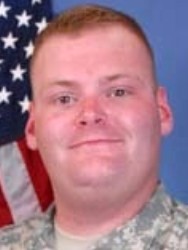

Synopsis:
The President of the United States of America, authorized by Act of Congress July 9, 1918 (amended by an act of July 25, 1963), takes pleasure in presenting the Silver Star to Sergeant John Michael Penich, United States Army, for conspicuous gallantry and intrepidity in connection with military operations against an armed hostile force while serving with Company B, 26th Infantry Regiment, 3d Brigade Combat Team, 1st Infantry Division in support of Operation ENDURING FREEDOM near Karangol Village, Afghanistan, on 16 October 2008. Sergeant Penich's decisive action saved the lives of his fellow Soldiers and was directly responsible for repelling an enemy attack that was trying to overrun his position. His calm leadership enabled all involved to perform outside of their regular capacity. His gallant actions and dedicated devotion to duty, without regard for his own life, were in keeping with the highest traditions of military service and reflect great credit upon himself, his unit, and the United States Army.
Home Town: Beach Park, Illinois


Synopsis:
The President of the United States takes pleasure in presenting the Silver Star Medal to Steven Peters, Sergeant, U.S. Army, for conspicuous gallantry and intrepidity in action while serving with the 3d Platoon, Company A, 5th Battalion, 20th Infantry Regiment, 3d Brigade, 2d Infantry Division, during combat operations in support of Operation IRAQI FREEDOM, on 6 May 2007 in Iraq. Without regard for his personal safety, Sergeant Peters braved a hail of enemy bullets to rescue Soldiers in a burning Stryker. Sergeant Peters entered the flame-engulfed Stryker looking for survivors and assisted in the rescue of the vehicle driver who was pinned underneath the Stryker.


Synopsis:
The President of the United States takes pride in presenting the Silver Star Medal (Posthumously) to Daniel Henry Petithory, Sergeant First Class, U.S. Army, for conspicuous gallantry and intrepidity in action while serving with the 3d Battalion, 5th Special Forces Group (Airborne), during combat actions in support of Operation ENDURING FREEDOM, in Afghanistan on 5 December 2001.
Home Town: Cheshire, Massachusetts
Personal Awards: Silver Star (War on Terrorism), Purple Heart
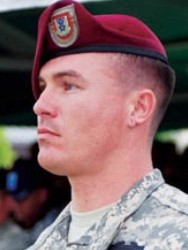

Citation:
The President of the United States of America, authorized by Act of Congress, July 9, 1918 (amended by act of July 25, 1963), takes pleasure in presenting the Distinguished Service Cross to Staff Sergeant Erich R. Phillips, United States Army, for extraordinary heroism in action while serving as Mortar Platoon Sergeant with Company C, 2d Battalion (Airborne), 503d Parachute Infantry Regiment, 173d Airborne Brigade Combat Team, in action at Ranch House in Nuristan Province, Afghanistan, on 22 August 2007. Staff Sergeant Phillips' gallant actions and dedicated devotion to duty, without regard for his own life, were in keeping with the highest traditions of military service and reflect great credit upon himself, his unit, and the United States Army. NARRATIVE TO ACCOMPANY AWARD: On 22 August 2007, at 0455L, the Ranch House Outpost at Aranas, Afghanistan, was attacked from all sides by a company-sized insurgent force, simultaneously engaging every post in the perimeter by multiple RPGs and small arms fire. Staff Sergeant Phillips was serving as the Mortar Platoon Sergeant with Company C, 2d Battalion, 503d Infantry Regiment (Airborne), 173d Airborne Brigade Combat Team. On that morning he woke up to the sound of intense small arms fire and RPG explosions. When he moved outside of his quarters he came under effective small arms fire and saw Afghan National Army (ANA) and Afghan Security Guard (ASG) forces fleeing from their post, which had swiftly been overrun by the insurgents. Staff Sergeant Phillips expertly positioned five soldiers, Private First Class White, Specialist Baldwin, Specialist Chavez, Sergeant Dirkinitis, and Special Schilling to defend the TOC, Aid Station, Mortar Pit and ASP, and led the way by returning fire on a quickly advancing enemy force from the vicinity of the ANA and ASG post while under intense RPG and small arms fire. He moved quickly to the TOC and reported directly to his Platoon Leader, First Lieutenant Ferrara, who told him that there was no communication with Post 3 and Post 4. Staff Sergeant Phillips returned to the mortar firing point to employ the 60-mm. mortars while staying in contact with Post 1, whose element continued to engage the overwhelming enemy assault with hand grenades and direct fire. With the insurgents within 15 meters of his position Staff Sergeant Phillips directed fires and hand grenades to suppress the enemy and protect the Platoon Leader, First Lieutenant Ferrara, who was talking to the company from his Platoon Command Post after the TOC had suffered several direct hits with RPGs rendering the antennas inoperable. Staff Sergeant Phillips' actions were essential in securing First Lieutenant Ferrara's position allowing the platoon leader to control indirect fire and CAS to thwart the enemy attack. When he learned that there were casualties at Post 2, Staff Sergeant Phillips took Sergeant Dirkinitis, the Platoon Medic, and assaulted upwards, 30 meters towards Post 2. Recognizing that Post 2 risked being isolated from the rest of the U.S. element he directed his team to give covering fire as he moved up the hill. As they moved Staff Sergeant Phillips and Sergeant Dirkinitis were pinned down by insurgents firing from the high ground near Post 3 and from behind the Class 1 shed 15 meters away. Soldiers at Post 2 told Staff Sergeant Phillips that there were multiple enemy personnel behind the Class 1 shed which was about 10 meters behind him. While under intense enemy fire he ran to a position from which he could throw multiple hand grenades to deter an enemy advance and continued to fire upon enemy positions. His decision to move toward Post 2 spread out the friendly line and was instrumental in preventing the enemy from overrunning the mortar pit and the Platoon Command Post as well as Post 2. As Staff Sergeant Phillips and Sergeant Dirkinitis continued to fight, Sergeant Dirkinitis was struck in the shoulder by a bullet. Staff Sergeant Phillips pulled him to cover while firing on the enemy. He recognized that he had to move to another position to save the wounded medic. He told Post 2 to provide covering fire while he dragged Sergeant Dirkinitis 15 meters back down the hill to a defilade position so he could be treated. Staff Sergeant Phillips then moved back to the mortar pit and directed Specialist Chavez to treat the casualty. At this point, First Lieutenant Ferrara had called in A-10s to strafe the enemy occupied ASG and ANA posts. As the insurgents' fire became sporadic, Staff Sergeant Phillips assembled a team to clear the Ranch House perimeter and recover Private First Class Deloria who had been isolated at Post 3. He lead the team up the hill and pulled Private First Class Deloria from beneath the rubble of the shattered Post 3. Staff Sergeant Phillips continued to organize the MEDEVAC of the casualties from Post 3 (Private First Class Deloria) and Post 2 (Sergeant Gonzalez, Sergeant Relph, Specialist Bell, and Private First Class Langevin) and moved them down the hill to the LZ to be evacuated. Through his quick thinking and total disregard for his own safety, Staff Sergeant Phillips prevented the Ranch House Outpost from being overrun by an enemy force three times larger and with superior fire power. His quick reaction in employing all available soldiers protected the Platoon CP from being overrun allowing external assets to be employed to defeat the enemy. He quickly assaulted toward Post 2 spreading out the friendly lines and directed lethal blows against the enemy halting their advance 10 meters short of the U.S. line. Absent this assault the enemy would have been able to maneuver in between the U.S. forces, isolating Post 2 from the mortar pit and breaking up the U.S. line of fire. Finally, he assembled an ad hoc force to clear the perimeter and recover the severely wounded Private First Class Deloria, who had been cut off for over 2 hours. His actions at Ranch House yielded invaluable intelligence with the death of MVT Hazrat Omar including enemy video tapes of attack plans, pictures of insurgents, and payroll documents utilized by ACM commanders. During the fierce three-hour battle at the Ranch House eleven U.S. soldiers, half of the U.S. garrison, were wounded. One ANA and one ASG Soldier were killed and one ASG Soldier was wounded. Eight insurgents were killed and a dozen more were wounded.
Home Town: Eastpoint, Florida
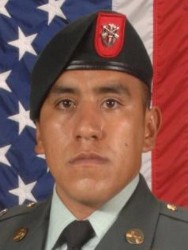

Citation:
The President of the United States of America, authorized by Act of Congress July 9, 1918 (amended by an act of July 25, 1963), takes pleasure in presenting the Silver Star to Staff Sergeant Mario A. Pinilla, United States Army, for exceptionally valorous actions as the Detachment Communications Sergeant for Special Forces Operational Detachment Alpha 7134 in support of Operation ENDURING FREEDOM on 20 August 2008. While under intense enemy fire, Sergeant Pinilla risked his own life by sprinting from his vehicle directly into the enemy's line of fire, suppressing the enemy the entire way, in order to support one of his teammates that was under direct effective fire from the enemy. Sergeant Pinilla arrived at his location providing him additional cover and risking his own life and subsequently was shot in the leg and lower back. Even after being shot Sergeant Pinilla continued engaging the enemy with his 9-mm. berretta while being treated for his wounds. Sergeant Pinilla's actions not only saved one of his teammate lives, but it reduced the enemy's fire allowing the rest of the detachment to fight through the kill zone to safety. His valorous actions under intense enemy fire throughout the day greatly contributed to the safety of the detachment and demonstrated his unwavering dedication to duty. His actions are in keeping with the finest traditions of military heroism and reflect distinct credit upon himself, the Combined Joint Special Operations Task Force-Afghanistan, and the United States Army. NARRATIVE TO ACCOMPANY AWARD: Staff Sergeant Mario A. Pinilla, United States Army, heroically distinguished himself by displaying valorous conduct in the face of the enemy of the United States while serving as the Special Forces Communications Sergeant for Operational Detachment Alpha 7134, Special Operations Task Force-71, Kandahar Airfield, Afghanistan, in support of Operation ENDURING FREEDOM on 20 August 2008. While conducting a Combat Reconnaissance Patrol to the village of Faramuz, Khas Oruzgan District, Afghanistan, in order to confirm or deny reports of Anti-Afghan Forces (AAF) activity, the patrol received information from the Shaspar village that an ambush was set towards the northern river crossing. A dismounted element was assigned to clear the area towards the river crossing while Sergeant Pinilla, serving as the driver for vehicle number one in the order of movement, over-watched that element. Within minutes, the hidden AAF initiated a well coordinated ambush against the dismounted and mounted elements with an intense volume of small arms, machine gun, and indirect fire. The AAF positions were approximately 75 meters from Sergeant Pinilla's vehicle, and within hand grenade range of the dismounted troops. The heavy concentration of enemy fire on the dismounted troops became overwhelming and Sergeant Pinilla observed that one of his teammates was fixed in the open field by a high volume of increasingly accurate small arms fire. Sergeant Pinilla observed that his fellow Soldier was pinned down receiving two small arms strikes, one to the side of his body and the other to the helmet, knocking his helmet completely off his head. Seeing that his teammate's position was about to be overrun, with no thought to his own personal safety, Sergeant Pinilla immediately grabbed his M249 Squad Automatic Weapon and sprinted approximately 75 meters from his vehicle, through open terrain, directly into the line of enemy fire while returning fire against the enemy the entire way. Once Sergeant Pinilla reached the location of his teammate, he dove to the ground positioning himself in between the enemy fire and his teammate. While using his own body to provide his teammate with additional cover, Sergeant Pinilla continued to suppress the enemy ambush line. After an approximate ten minute exchange of highly intense and accurate direct fires, Sergeant Pinilla suffered two severe gunshot wounds: one in the lower back and another on the upper left thigh. While his fellow detachment members fought to get to him back to safety, Sergeant Pinilla drew his 9-mm. Beretta and continued engaging the enemy's ambush line, despite being critically injured. Sergeant Pinilla's rapid response in this critical situation, putting his own life at risk, ultimately saved the life of another detachment member. As a result of his exceptional courage, in addition to voluntarily aiding his teammate by providing additional cover from lethal enemy fires, he is credited with killing at least five enemy combatants at 10 meters close range, destroying one enemy fighting position, and eliminating the enemy's ability to flank the rest of the detachment. Due to the severity of his wounds, Sergeant Pinilla was evacuated from the battlefield as a Category Alpha casualty and was subsequently transported to Walter Reed Army Medical Center were he began his slow recovery. Sergeant Pinilla's actions are in keeping with the finest traditions of military heroism and reflect distinct credit upon himself, the Combined Joint Special Operations Task Force-Afghanistan, Special Operations Command Central, and the United States Army.
Home Town: New York, New York


Synopsis:
The President of the United States takes pleasure in presenting the Silver Star Medal to Ross C. Pixler, First Lieutenant (Infantry), U.S. Army, for conspicuous gallantry and intrepidity in action while serving as a Platoon Leader with Company A, 1st Battalion, 15th Infantry Regiment, 3d Brigade Combat Team, 3d Infantry Division, during combat operations in support of Operation IRAQI FREEDOM, on 30 October 2007, in Iraq. While riding through Salman Pak in a convoy of three Humvee's, Lieutenant Pixler's vehicles were attacked, instantly killing three soldiers in one vehicle and wounding Lieutenant Pixler. Reduced to two vehicles and dealing with several casualties, and although his men were still under intense fire, Lieutenant Pixler ignored the pain of a broken arm and ankle to dismount and go to the radio in one of his two remaining Bradleys to coordinate close-air support and kept his platoon under control.
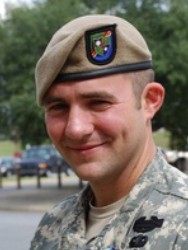

Citation:
The President of the United States of America, authorized by Act of Congress July 9, 1918 (amended by an act of July 25, 1963), takes pleasure in presenting the Silver Star to Sergeant First Class Ray A. Plasterer, II, United States Army, for conspicuous gallantry and intrepidity during combat operations against an armed enemy of the United States while serving as an Assistant Team Sergeant with the Regimental Special Troops Battalion, 75th Ranger Regiment, as part of a Joint Task Force, on 10 May 2008, in support of Operation ENDURING FREEDOM in Afghanistan. After Sergeant First Class Plasterer's patrol came under ambush from two positions, he moved under heavy enemy fire through an open area and into the kill zone to reach his vehicle to radio for immediate close air support and medical evacuation of wounded personnel. Seeing his radio was inoperable and that he was pinned down in the vehicle, he drove it in reverse back to his five-man squad until the truck was disabled. He again braved intense small arms fire to link up with his squad and passed critical information to the Ground Force Commander. His tactical decision-making put his unit into a position which allowed them to engage the enemy with deadly precision, maintain fire superiority, and allow the remainder of the force to enter the large building and destroy the last of the enemy combatants. Throughout the two-hour fight, his courage and heroism saved numerous lives and led to a decisive victory and the death of twenty-two combatants. Sergeant First Class Plasterer's distinctive accomplishments are in keeping with the finest traditions of military service and reflect great credit upon himself, the Joint Task Force, and the United States Army.
Home Town: Harrisburg, Pennsylvania
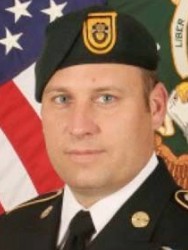

Synopsis:
The President of the United States of America, authorized by Act of Congress July 9, 1918 (amended by an act of July 25, 1963), takes pleasure in presenting the Silver Star to Sergeant First Class Earl D. Plumlee, United States Army, for gallantry in action in August 2013, while serving with Operation Detachment Alpha 1434 (ODA-1434), 1st Special Forces Group (Airborne), in support of Operation ENDURING FREEDOM in Afghanistan. Sergeant First Class Plumlee distinguished himself when a vehicle-borne IED initiated an attack on Forward Operating Base Ghazni, Afghanistan, followed by the attack of nine insurgents armed with small arms, grenades, rocket-propelled grenades and suicide vests. During the attack, Sergeant First Class Plumlee repeatedly engaged the enemy at close range, was wounded by a detonating suicide vest, risked his life to bring another Soldier to safety and provide first aid, all while continually putting himself in the line of fire in order to prevent the assault from penetrating the perimeter of the FOB. His gallant actions and dedicated devotion to duty, without regard for his own life, were in keeping with the highest traditions of military service and reflect great credit upon himself, his unit, and the United States Army.
Home Town: Merritt, Oklahoma


Citation:
The President of the United States takes pleasure in presenting the Silver Star Medal to David M. Plush, Staff Sergeant, U.S. Army, for conspicuous gallantry and intrepidity in action while serving as Weapons Squad Leader, with the 3d Platoon, Company A, 5th Battalion, 20th Infantry Regiment, 3d Brigade, 2d Infantry Division, during combat operations in support of Operation IRAQI FREEDOM, on 6 May 2007, in Iraq. Sergeant First Class Plush's personal bravery and selfless actions are in keeping with the highest traditions of the military service and reflect great credit upon himself, the 2d Infantry Division, and the United States Army.
NARRATIVE TO ACCOMPANY AWARD:
Staff Sergeant David M. Plush distinguished himself by exceptionally valorous acts in the performance of outstanding service to the United States as Weapons Squad Leader, with the 3d Platoon, Company A, 5th Battalion, 20th Infantry Regiment, 3d Brigade, 2d Infantry Division, in support of Operation IRAQI FREEDOM, on 6 May 2007. Staff Sergeant Plush performed multiple acts of conspicuous valor, in total disregard for his personal safety and in the face of life threatening danger. On 6 May 2007, in Old Baqubah, Baqubah, Iraq. Staff Sergeant Plush, while serving in the capacity of Weapons Squad Leader, moved dismounted and responded to the aid of 2d Squad. 2d Squad's Stryker (A32V) was hit by a DBIED (Deep Buried Improvised Explosive Device) on RTE Pacific and RTE Market. A 32V was catastrophically destroyed, the explosion killed six Soldiers, one civilian photographer and wounded one Soldier who was trapped inside and in need of medical care. Staff Sergeant Plush was one of the first persons to respond to the scene. He had dismounted his vehicle and maneuvered the remaining elements of his Squad to the site of the destroyed Stryker. Upon arrival he started assessing the situation and attempted to locate any survivors. Staff Sergeant Plush noticed that the vehicle was smoldering and that there were large amounts of fuel all over the ground. He knew that Specialist Clark was trapped inside, in need of medical attention and that flames and smoke would eventually kill him if he didn't act fast. Staff Sergeant Plush identified that he needed to get a fire extinguisher and then single-handedly ran to A31V, which was over 100 meters away from the site of the recovery. A31V was stationary on RET Pacific, next to the Ibraheem Izzat Mosque. The recovery effort was underway, and Staff Sergeant Plush was in the vicinity of A31V when the Platoon started to receive heavy enemy contact from the mosque. The rounds were impacting the overturned Stryker and inches away from dismounted Soldiers attempting to rescue Specialist Clark. The Platoon began returning fire on identified enemy locations. Staff Sergeant Plush was right in the crossfire and just feet away from the mosque. He immediately started receiving accurate and sustained fire on his position, originating from the mosque. He instructed A31V to back up, returned fire and used the vehicle for cover, then he had A31V engage the mosque with .50 caliber machine gun fire. From across the road, Staff Sergeant Plush saw that the isolated flames inside the destroyed Stryker had started to spread. With total disregard for his personal safety, while under accurate enemy fire, with no covered or concealed route, he ran across the open ground back to the overturned Stryker. The Platoon provided overwhelming amounts of covering fire to facilitate Staff Sergeant Plush's movement. While in contact Staff Sergeant Plush began moving in and around the vehicle, effectively extinguishing the fire. After a few minutes, the sustained gunfire subsided and only sporadic fire continued. The Platoon was able to reduce the threat and the enemy contact ceased. Once the flames were extinguished, Staff Sergeant Plush began assisting the other first responders in the rescue attempt. After the Platoon was able to get vehicle jacks, they were able to lift A32V enough (using three jacks) to get Specialist Clark out; he had injuries to his right hand and was Medevaced. Staff Sergeant Plush continued to assist in directing the recovery effort, adjusted his men into a security posture and searched for the remains of his fallen comrades. He only ceased the recovery when he collapsed from physical exertion and had to be medevaced. Staff Sergeant Plush's selfless acts saved the life of Specialist Clark and prevented the loss of further lives. His actions are a true testament to the Army standard of never leaving a fallen comrade. His actions are in keeping with the finest traditions of military service and reflect distinct credit upon himself, this Command and the United States Army.
Home Town: Riverton, Wyoming


Synopsis:
The President of the United States takes pleasure in presenting the Silver Star Medal to Neil Prakash, First Lieutenant (Armor), U.S. Army, for conspicuous gallantry and intrepidity in action while serving as a Platoon Leader with 2d Battalion, 63d Armored Regiment, 1st Infantry Division, during combat operations in support of Operation IRAQI FREEDOM, on 24 June 2004, in Iraq. On the morning of 24 June 2004, after spending all night and morning patrolling and setting up observations posts in Ba'Qubah, Iraq, Lieutenant Prakash's platoon returned to Forward Operating Base Scunion when he received word that the police station, CMOC, and other friendly installations in Ba'Qubah were under attack. His company immediately geared up and by 1045 hours was maneuvering south into Ba'qubah with 1st platoon in the lead. They were to seize and secure a set of twin bridges and set up a blocking position to prevent the enemy from reinforcing. As they advanced toward their objective, they began receiving reports of enemy activity in the city. Four-man RPG teams had been spotted on rooftops, as well as dismounted enemy infantry in alleyways. They were told to expect IED and RPG ambushes by a well-trained enemy who meant to stand and fight, and shortly after arriving in their position there was a massive detonation. It took the crew about one hour to fight their way through the next one kilometer stretch of road. Official battle reports count 23 IEDs and 20-25 RPG teams in that short distance, as well as multiple machine-gun nests, and enemy dismounts armed with small arms and hand grenades. Because enemy dismounts were attempting to throw hand grenades into the tank's open hatches, Lieutenant Prakash ordered the tanks to open protected mode bringing the hatches down, leaving them open only a crack. As the lead vehicle, Lieutenant Prakash's tank took the brunt of the attack, sustaining blasts from multiple IEDs and at least seven standard and armor piercing RPGs. The enemy fired mainly at the lead tanks, aiming for the few vulnerable spots. One round blew the navigation system completely off of the vehicle, while another well-aimed blast disabled his turret. Although unable to rotate the turret, Lieutenant Prakash continued in the lead, navigating with a map and maneuvering his tank in order to continue engaging the enemy with the main weapon system and his .50 caliber machine-gun. He watched as men on rooftops sprayed down at his tank with machine-guns and small arms. The platoon was finally ordered to turn around and head back north in order to maintain contact with the enemy and to establish a defensive perimeter, allowing a recovery team to retrieve a downed vehicle. Lieutenant Prakash took the opportunity to move his tank back to FOB Scunion for repairs and provide escort for medical evacuations. After assisting with repairs, he and his crew immediately moved back into position and requested to resume the lead. Moving south back through the city, they encountered no resistance. Once they neared their objective, however, Lieutenant Prakash identified and engaged an enemy re-supply truck, destroying the vehicle and its contents. The men encountered no further resistance as they moved to the objective, where they established a blocking position until they were relieved the following morning. By battle's end, the platoon was responsible for 25 confirmed destroyed enemy and an estimated 50 to 60 additional destroyed enemy personnel. Lieutenant Prakash was personally credited with the destruction of eight enemy strong-points, one enemy re-supply vehicle, and multiple enemy dismounts.
Born: at India
Home Town: Syracuse, New York


Synopsis:
The President of the United States takes pride in presenting the Silver Star Medal (Posthumously) to Terry William Prater, Staff Sergeant, U.S. Army, for conspicuous gallantry and intrepidity in action while serving with the 1st Squadron, 8th Cavalry Regiment, 2d Brigade Combat Team, 1st Cavalry Division, during combat operations in support of Operation IRAQI FREEDOM, on 4 August 2004. During a series of explosions in Baghdad, Iraq, a grenade was thrown into Staff Sergeant Prater's position, endangering the life of a comrade. Staff Sergeant Prater covered his comrade with his own body, shielding him from the explosion and taking in his own body the force of the explosion and shrapnel.
Born: August 13, 1981 at Kentucky Home Town: Speedwell, Tennessee
Personal Awards: Silver Star (War on Terrorism), 2@ Purple Hearts
PRESSON, GARY L.
Synopsis:
The President of the United States of America, authorized by Act of Congress July 9, 1918 (amended by an act of July 25, 1963), takes pleasure in presenting the Silver Star to Master Sergeant Gary L. Presson, United States Army, for conspicuous gallantry and intrepidity in action against the enemy in support of Operation IRAQI FREEDOM in Iraq. His gallant actions and dedicated devotion to duty, without regard for his own life, were in keeping with the highest traditions of military service and reflect great credit upon himself, his unit, and the United States Army.


Citation:
The President of the United States takes pride in presenting the Silver Star Medal (Posthumously) to Bruce E. Price, Chief Warrant Officer Two, U.S. Army, for conspicuous gallantry and intrepidity in action while serving as the assistant detachment commander for Operational Detachment Alpha 313 (ODA-313), Combined Joint Special Operations Task Force-Afghanistan in support of Operation ENDURING FREEDOM during an armed reconnaissance mission near Musa Qalay, Afghanistan on 15 May 2004. Chief Warrant Officer Price's personal bravery and selfless actions are in keeping with the highest traditions of the military service and reflect great credit upon himself, his unit, and the United States Army.
NARRATIVE TO ACCOMPANY AWARD:
Chief Warrant Officer 2 Bruce E. Price distinguished himself by gallantry in action and extreme heroism above and beyond the call of duty as the assistant detachment commander for Operational Detachment Alpha 313 (ODA-313), Combined Joint Special Operations Task Force-Afghanistan in support of Operation ENDURING FREEDOM during an armed reconnaissance mission near Musa Qalay, Afghanistan on 15 May 2004. On this date, Chief Warrant Officer Two Price and his detachment were part of a combined patrol consisting of U.S. Special Forces and soldiers from the 1st Kandak, 3d Brigade of the Afghan National Army. The purpose of the mission was to disrupt anti-coalition militia (ACM) activity in this known enemy sanctuary. Chief Warrant Officer Two Price commanded the lead vehicle in a convoy composed of two ground mobility vehicles (GMV) and two non-tactical vehicles. While moving through a small, restricted village, the patrol was ambushed at extremely close range from multiple prepared positions. Chief Warrant Officer Two Prices' GMV was immediately struck head-on by two rocket propelled grenades (RPG) and machine gun fire, disabling the vehicle. Within seconds of the ambush, all personnel in Chief Warrant Officer Two Price's vehicle were wounded or unable to return fire. The determined enemy swept the vehicle with repeated volleys of machine gun and RPG fire. Chief Warrant Officer Two Price immediately rallied his men and tried to gain fire superiority in order to break the enemy attack. He quickly realized that the enemy force was concentrating its fire on the lead and trail vehicles of the patrol in an effort to trap the friendly forces inside a prepared kill zone. With his vehicle in flames and under a mounting volume of fire, Chief Warrant Officer Two Price gave the order to dismount and seek cover. Chief Warrant Officer Two Price then exited the vehicle and without hesitation began engaging enemy directly to his front from the exposed door machine gun position on his vehicle. The ACM force immediately began concentrating its fire on Chief Warrant Officer Two Price. With total disregard for his own life, his continued to man the machine gun until he was mortally wounded by small arms fire. Chief Warrant Officer Two Price's courageous efforts to destroy the enemy enabled his teammates to reach cover and continue to fight. His valorous leadership and spirited actions served as the call to action, which inspired the entire patrol to drive the entrenched enemy from the field. Chief Warrant Officer Two Price's conspicuous personal heroism, extraordinary valor and selfless courage saved a number of his detachment members from certain injury and possible death at the cost of his life. The gallantry in action and absolute bravery in the line of fire by Chief Warrant Officer 2 Bruce E. Price reflect great credit upon himself, the Combined Joint Special Operations Task Force-Afghanistan and the United States Army.
Born: September 11, 1966 at Washington, D.C.
Home Town: Chevy Chase, Maryland
Personal Awards: Silver Star (War on Terrorism), Bronze Star, Purple Heart
PRICE, CARTER L.
Citation:
The President of the United States of America, authorized by Act of Congress July 9, 1918 (amended by an act of July 25, 1963), takes pleasure in presenting the Silver Star to Major Carter Limer Price, United States Army, for conspicuous gallantry and intrepidity in connection with military operations against the enemy while serving with the 2d Brigade Combat Team, 3d Infantry Division, in support of Operation IRAQI FREEDOM during the Battle for Baghdad, Iraq, in April 2003. Major Price's gallant actions and dedicated devotion to duty, without regard for his own life, were in keeping with the highest traditions of military service and reflect great credit upon himself, the 3d Infantry Division, and the United States Army.
Home Town: West Virginia
PRICE, DAVID K.
Synopsis:
The President of the United States of America, authorized by Act of Congress July 9, 1918 (amended by an act of July 25, 1963), takes pleasure in presenting the Silver Star to Staff Sergeant David Kirkwood Price, United States Army, for conspicuous gallantry and intrepidity in connection with military operations against an armed hostile force while serving in support of Operation IRAQI FREEDOM in Iraq. Staff Sergeant Price's gallant actions and dedicated devotion to duty, without regard for his own life, were in keeping with the highest traditions of military service and reflect great credit upon himself, his unit, and the United States Army.


Citation:
The President of the United States takes pride in presenting the Silver Star Medal (Posthumously) to Joseph E. Proctor, Sergeant, U.S. Army, for conspicuous gallantry and intrepidity in action while serving as Military Transition Team Trainer for the 1st Battalion, 172nd Armor, Camp Ramadi, Iraq on 3 May 2006 during Operation IRAQI FREEDOM. Sergeant Proctor's personal bravery and selfless actions are in keeping with the highest traditions of the military service and reflect great credit upon himself, his unit, and the United States Army.
NARRATIVE TO ACCOMPANY AWARD:
Sergeant Joseph E. Proctor distinguished himself by exceptionally valorous conduct in the face of an enemy attack as Military Transition Team Trainer for 1st Battalion, 172nd Armor, at Camp Ramadi, Iraq on 3 May 2006 during Operation IRAQI FREEDOM. Sergeant Proctor served with 1st Battalion, 1st Brigade, 7th Iraqi Division as a Military Transition Team Trainer in the Anbar Province of Iraq. This is one of the most dangerous and challenging jobs a soldier can perform. Previously, Sergeant Proctor was a petroleum supply specialist who volunteered from the task force support platoon. He was in almost constant danger patrolling the most violent areas of the 5 Kilo District of Tammim, often with only one other coalition force member present. Sergeant Proctor would spend several consecutive days at Observation Post 293, one of the most isolated areas in Ramadi. This observation post had been a target for insurgents in the Tammim area and routinely came under attack. Sergeant Proctor was on duty the afternoon of May 3d when Observation Post 293 came under one of the fiercest attacks since its establishment. At approximately 1415 hours on May 3rd, Observation Post 293 began receiving indirect fire. At least four rounds landed, some within extremely close proximity and some directly on the observation post. Sergeant Proctor was in a relatively safe location at the time, inside the barracks, which was a cement structure. Cognizant of the hazards outside the barracks and without any official order to leave the safety of the building, Sergeant Proctor quickly donned his protective equipment and secured his weapon. He developed an expedient plan, left the safety of the building to assess the situation and render aid to those on security who were under attack. Shortly after he entered the compound, the observation post was attacked with small-arms fire. It appeared they were under a complex attack. The severity of the attack ultimately was a diversion by the enemy in its attempt to destroy the observation post with a large, powerful and deadly vehicular suicide bomb. A large dump truck penetrated the west gate during the complex attack and continued moving toward the center of the observation post. Sergeant Proctor immediately and aggressively stood his ground in the compound, firing over 25 rounds from his M16 into the cab of the vehicular suicide bomb. He did not waver-he did not flinch, engaging the vehicle head-on as it was moving toward him and the remaining Soldiers in the building. He killed the driver of the dump truck before the truck could enter further into the interior of the compound. The vehicular suicide bomb detonated causing significant destruction from the point of the explosion. Sergeant Proctor was mortally wounded where he made his stand against the attack. Sergeant Joseph Proctor saved countless lives that fateful day by stopping the driver before he could reach his objective. His actions were nothing less than heroic and embody the warrior ethos by his selfless courage. His actions are in keeping with the finest traditions of military service and reflect distinct credit upon himself, the Indiana National Guard and the United States Army..
Home Town: Indianapolis, Indiana
Personal Awards: Silver Star (War on Terrorism), Purple Heart


Synopsis:
The President of the United States takes pleasure in presenting the Silver Star Medal to Robert Prosser, Sergeant Major, U.S. Army, for conspicuous gallantry and intrepidity in action while serving with the 1st Battalion, 26th Infantry Regiment, 2d Brigade Combat Team, 1st Infantry Division, in combat action against the enemy in support of Operation IRAQI FREEDOM, on 19 August 2004, in Iraq. On that date, in action against insurgent forces, Sergeant Major Prosser saw his commander shot down. Amid a hail of bullets hitting the ground and walls around him, Command Sergeant Major Prosser charged into a building, despite the fact that he did not know how many insurgents were attacking from inside. Finding one enemy, Sergeant Major Prosser shot him four times in the chest, then discarded his empty rifle to engage the enemy in hand-to-hand combat. The insurgent pulled Command Sergeant Major Prosser's helmet over his eyes, but this intrepid soldier, unable to reach his sidearm or his knife, and without the support of any other American soldiers, he nonetheless disarmed and subdued the insurgent by delivering a series of powerful blows to the insurgent's head, rendering him unconscious.
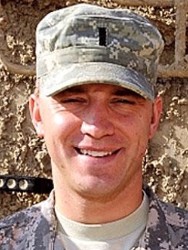

Synopsis:
The President of the United States of America, authorized by Act of Congress July 9, 1918 (amended by an act of July 25, 1963), takes pleasure in presenting the Silver Star to First Lieutenant David A. Provencher, United States Army, for gallantry in connection with military operations against an opposing armed force on 16 June 2010 while serving with Company C, 1st Battalion, 87th Infantry Regiment, 10th Mountain Division, in support of Operation ENDURING FREEDOM in Afghanistan. On that date, Lieutenant Provencher's platoon was serving as the quick-reaction force for a joint U.S. Special Forces and Afghan National Army Commando operation in the volatile northern Afghanistan province of Kunduz when Special Forces units suffered a series of weapons malfunctions that jeopardized the mission. Lieutenant Provencher moved his platoon forward and established two mounted positions with his vehicles, then went by foot with another soldier to meet up with the Special Forces team leader and assess the battlefield situation. On numerous occasions as he moved forward, Lieutenant Provencher was exposed to enemy fire from small arms, machine guns, rocket-propelled grenades and mortars. When Lieutenant Provencher spotted enemy fighters moving into positions north and west of his platoon's location, he again moved through enemy fire to place his men in secure positions. His quick placement of troops and their precise fire stopped the enemy's advance and created in lull in the fighting, enabling the engineers to continue their road clearing operations. Within minutes of resuming their operations, an improvised explosive device detonated under a route clearance vehicle being used by the engineers. Knowing the engineers may have been wounded, Lieutenant Provencher led two of his soldiers through intense enemy fire to the overturned vehicle. As his soldiers worked to help the wounded men, he provided security and suppressed enemy fire while repositioning the other members of his platoon to better secure the blast site. He then led the three wounded men to a Special Forces medic and returned to his troops, where he discovered a mortally wounded engineer near the overturned vehicle. He quickly recovered the soldier and placed him in a vehicle for evacuation. When he went to the rescue of a fifth engineer he found trapped under the gunner's turret of the destroyed vehicle, the enemy fire intensified, but seemingly oblivious to the onslaught of fire from small arms, machine guns and mortars, Lieutenant Provencher worked furiously to free the soldier. The withering enemy fire drove the troops back, leaving him as an exposed target. Seeing that he was trying to recover the trapped engineer, the enemy forces concentrated their fire on him. Refusing to leave the fallen soldier, Lieutenant Provencher continued his efforts to free him from the overturned vehicle. Lieutenant Provencher's resolve inspired and revitalized his platoon to continue fighting, and a recovery vehicle was brought forward to lift the wreckage off the fallen engineer. Lieutenant Provencher then carried the body of the dead soldier through heavy fire to another vehicle for evacuation, and then he and the members of his platoon provided suppressive fire until the remaining engineers and their equipment moved out of the enemy's line of fire. Lieutenant Provencher's gallant actions and dedicated devotion to duty, without regard for his own life, were in keeping with the highest traditions of military service and reflect great credit upon himself, the 10th Mountain Division, and the United States Army.
Home Town: Ellenville, New York


Synopsis:
The President of the United States takes pleasure in presenting the Silver Star Medal to Anthony S. Pryor, Master Sergeant, U.S. Army, for conspicuous gallantry and intrepidity in action while serving with Company A, 1st Battalion, 5th Special Forces Group (Airborne) during a combat mission in support of Operation ENDURING FREEDOM, in Afghanistan, on 23 January 2002, during a search mission for suspected terrorists. As Master Sergeant Pryor and his team began moving through the area, enemy fighters began firing upon the group. The team got separated, leaving Pryor and another soldier clearing room by room. The other soldier was distracted by an enemy fighter and stayed outside to return fire. Master Sergeant Pryor continued forward and as an enemy fighter came charging out of a room, he assisted in killing him. He pushed ahead and found himself alone with three insurgents. As he was engaged with the two who had guns, an insurgent crept up behind him and began attacking, breaking a clavicle and dislocating his shoulder. Master Sergeant Pryor wrestled with the assailants, engaging in a hand-to-hand struggle and eventually eliminating him. The two gunmen he had shot revived during the fight, and attempted to kill him, but Master Sergeant Pryor quickly began shooting at them again, this time killing them. He then rejoined the fight outside the building. When the battle ended, 21 enemy fighters had been killed.
Home Town: Toledo, Oregon


Citation:
The President of the United States takes pride in presenting the Silver Star Medal (Posthumously) to Robert Shane Pugh, Sergeant, U.S. Army, for exceptional display of heroism and selfless service while serving as a Medical Aidman with Company A, 1st Battalion, 155th Infantry Regiment, on 2 March 2005, during military operations in support of Operation IRAQI FREEDOM III. Sergeant Pugh's platoon was conducting a combat patrol in a hostile area near Iskandariyah, Iraq. While providing security for a group of engineer soldiers, an Improvised Explosive Device detonated seriously wounding Sergeant Pugh and Sergeant First Class Ellis Martin. Although in extreme pain, Sergeant Pugh directed treatment instructions to the members of his platoon for both himself and Sergeant First Class Martin. He remained calm and continued to give instructions until the medical evacuation helicopter arrived. Sergeant Pugh passed away on route to the hospital, however his courage and disregard for his own welfare resulted in saving the life of a fellow comrade who was severely wounded. His bravery is in keeping with the finest traditions of military heroism and reflect distinct credit upon himself, the 1st Battalion, 155th Infantry Regiment, Multi-National Corps Iraq, and the United States Army.
Home Town: Stonewall, Mississippi
Personal Awards: Silver Star (War on Terrorism), Purple Heart


Synopsis:
The President of the United States takes pleasure in presenting the Silver Star Medal to Gregory Pushkin, Specialist, U.S. Army, for conspicuous gallantry and intrepidity in action while serving with the 1st Battalion, 506th Infantry Regiment, 101st Airborne Division, during combat actions in support of Operation IRAQI FREEDOM. On 13 March 2006, Specialist Pushkin distinguished himself as a member of Task Force CURRAHEE, when his unit was ambushed at Ramadi, Iraq, risking his own life numerous times to come to the aid of his comrades. He kicked down the door of a home to provide cover for injured troops reeling from the intensity of the ambush. He laid down suppressive fire and then he and a comrade pushed their way to reach a pair of troopers who were pinned down and injured.
Home Town: Galena, Ohio
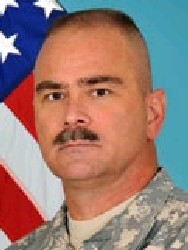

Synopsis:
The President of the United States of America, authorized by Act of Congress July 9, 1918 (amended by an act of July 25, 1963), takes pleasure in presenting the Silver Star to Sergeant First Class Jerold Thomas Pyle, Jr., United States Army, for conspicuous gallantry and intrepidity in connection with military operations against an armed hostile force while serving in support of Operation IRAQI FREEDOM in Iraq. Sergeant First Class Pyle's gallant actions and dedicated devotion to duty, without regard for his own life, were in keeping with the highest traditions of military service and reflect great credit upon himself, his unit, and the United States Army.
Home Town: Springfield, Missouri


